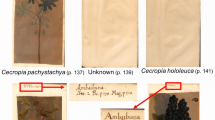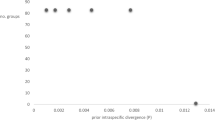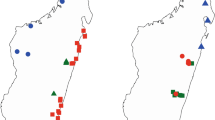Abstract
ALTHOUGH the ethnomycology of the native peoples of New Guinea is poorly documented it is known that throughout the island various fungi are gathered for food1 and that certain fungi, principally mushrooms of the genus Boletus, play an important part in the ‘mushroom madness’ characteristic of the Kuma people of the New Guinea Highlands2. We report here that sclerotia of Lentinus tuberregium are made into club-heads by the Gogodala people who live mostly along the swampy middle reaches of the Aramia River in the Western Province of Papua New Guinea.
This is a preview of subscription content, access via your institution
Access options
Subscribe to this journal
Receive 51 print issues and online access
$199.00 per year
only $3.90 per issue
Buy this article
- Purchase on Springer Link
- Instant access to full article PDF
Prices may be subject to local taxes which are calculated during checkout
Similar content being viewed by others
References
Massal, E. & Barrau, J. South Pacific Commission Tech. Paper 94 (1956).
Heim, R. & Wasson, R. G. Harvard University Botanical Museum Leaflets 21, 1–36 (1965).
Talbot, P. H. B. Principles of Fungal Taxonomy (Macmillan, London, 1971).
Speiser, F. Zeitschrift für Ethnologie 64, 74–105 (1932).
Author information
Authors and Affiliations
Rights and permissions
About this article
Cite this article
PRICE, T., BALDWIN, J. & SIMPSON, J. Fungal club-heads in Papua New Guinea. Nature 273, 374–375 (1978). https://doi.org/10.1038/273374a0
Received:
Accepted:
Issue Date:
DOI: https://doi.org/10.1038/273374a0
Comments
By submitting a comment you agree to abide by our Terms and Community Guidelines. If you find something abusive or that does not comply with our terms or guidelines please flag it as inappropriate.



